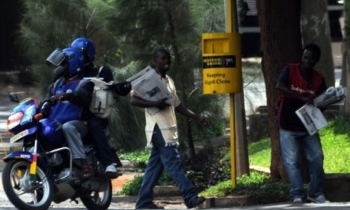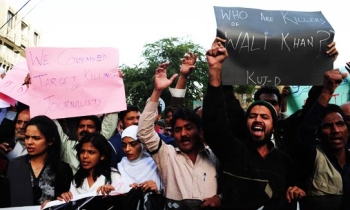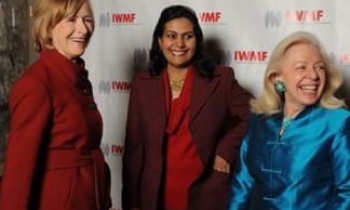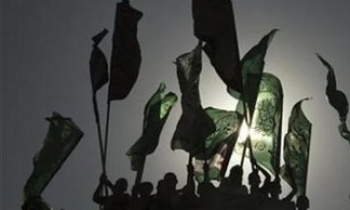The latest jail terms handed down to journalists in Egypt are making the country being seen as one of the most repressive for media in the world.
A court has imposed a sentence of one-month’s forced labour on editor of Al-Wafd, Anwar Al-Hawari and Younes Darwish, the daily’s correspondent in Assyout, 380 km south of Cairo, for “publishing false news†about fraud by two members of the ruling National Democratic Party (NDP).
Darwish wrote an article that appeared in March 2007 based on a meeting of the regional municipal council in Assyout, during which two lawyers, both NDP members, were accused of illegally obtaining land belonging to the Ministry of Islamic Affairs.
Al-Wafd is the mouthpiece of the main liberal opposition party Al-Wafd al-Jadid, which is headed by Mahmoud Abaza. Opposition newspapers are among the very few critical sources of news in Egypt today. “How can they convict me in a case I had no idea about and ignore my parliament immunity,†Abaza, also the daily’s chairman of the board, told the Associated Press (AP).
The correspondent said that he had made no judgment about the two complainants but the local court nevertheless sentenced Anwar Al-Hawari and Younes Darmish to a month of forced labour. They will remain free while awaiting the outcome of their appeal, which is due to open on January 5, 2008.
“The growing number of court cases brought against Egyptian journalists is in complete contradiction with Hosni Mubarak’s electoral programme,†Reporters sans Frontières (RSF) said. “He promised at the start of his new mandate to decriminalise press offences.â€
“Another harsh ruling against opposition voices has left Egypt’s press freedoms in tatters,†Committee to Protect Journalists (CPJ) Executive Director Joel Simon said. “We’re very disturbed by this sustained pattern of indirectly targeting the press though criminal lawsuits—a pattern that underscores the Egyptian government’s oppressive stance toward the press.â€
“In a matter of months, Egypt has become one of the most repressive countries for journalists,†said Aidan White, International Federation of Journalists (IFJ) General Secretary. “The authorities have shamelessly and relentlessly pursued reporters through the courts and they use criminal defamation to intimidate and stifle critics.â€
“The deterioration in relations between the independent and opposition press is a reminder that freedom to inform can never be taken for granted. Egyptian journalists, although more free than their colleagues in the Arab world, have to face a return to censorship and control of the media,†RSF said.
“Attacks on Egyptian media are increasing at an alarming rate and it is clear that the government is sending a strong message that it will not tolerate critical reporting,†said White. “This policy is a clear attack on press freedom and basic human rights and the latest charges and sentences handed down against journalists appear to be part of an intimidation campaign. We call on President Mubarak to end these politically motivated prosecutions and allow journalists to work freely and independently.â€
The court ruling comes shortly after three journalists on the same paper, including the editor, were sentenced on September 24 to two years in prison for “damaging the reputation of the court systemâ€. A criminal court then convicted al-Hawari, Deputy Editor-in-Chief Mahmoud Ghalab, and Politics Editor Amir Salem on a libel complaint filed by 11 lawyers affiliated with NDP. They were each sentenced to two years in prison but are free on appeal.
Editor-in-Chief Ibrahim Eissa of the daily Al-Dustour is on trial in relation to articles and headlines about Mubarak’s supposed declining health. On September 13, in an unprecedented case, a Cairo court sentenced four independent editors to one-year jail terms for publishing “false information†and defaming Mubarak and top aides, including son Gamal Mubarak.
In May, CPJ designated Egypt as one of the world’s worst backsliders on press freedom, citing an increase in legal and physical attacks on the press.









